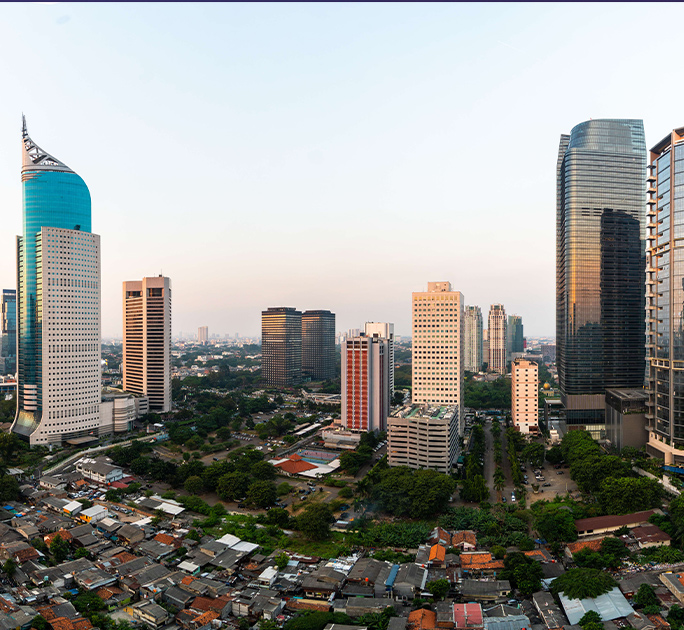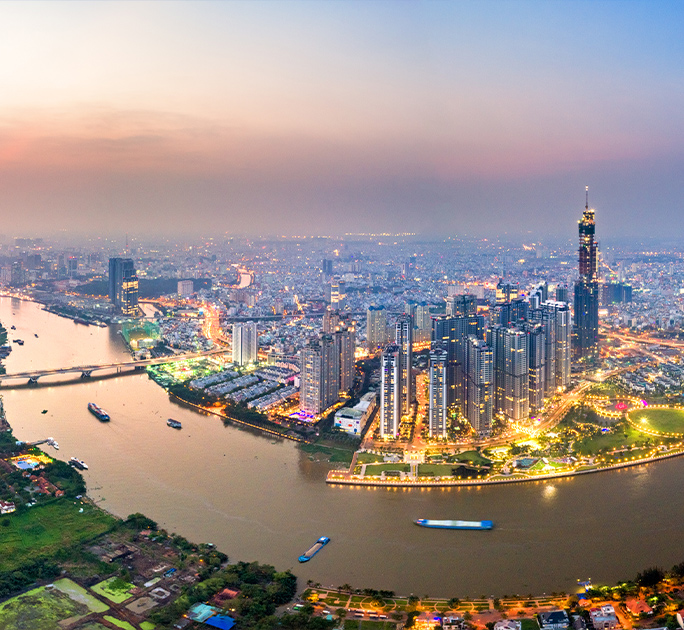About Singapore
Singapore, a vibrant city-state in the heart of Southeast Asia, offers a number of competitive advantages to businesses setting up a treasury function. Singapore is ranked second in the World Bank’s Ease of Doing Business Index 2020.
The city has a well-established business infrastructure with a transparent and efficient institutional framework, a pool of highly skilled English-speaking professionals and a regulatory system that meets international standards. Singapore is also the largest foreign exchange market in Asia-Pacific, and nearly 200 banks have a presence in the country, with a growing number choosing it as a base for their regional operational headquarters. Singapore also has an established financial sector, mature capital markets and a wide variety of sophisticated financial instruments.
Singapore has preferential investment and business policies with members of the Association of Southeast Asian Nations (ASEAN) and tax treaties with 93 countries and territories, offering tax incentives for businesses. In addition, it offers approved finance and treasury centres (FTC) a reduced corporate tax rate of 8% on income derived from qualifying FTC services.
With 5G trials underway, the government is rolling out programmes to help industries adopt and utilise 5G technology. These include training programmes, innovation labs and start-up collaborations. In 2020, the Monetary Authority of Singapore (MAS) launched a SGD125 million support package for financial and financial technology (FinTech) sectors as they deal with the challenges of COVID-19. This fund is on top of a host of other government initiatives, such as innovation grants, a regulatory sandbox, the API Exchange, and Project Ubin, to assist the country’s growing fintech sector.
Singapore's geographic location has made it a major shipping and logistics hub, and it is the second busiest port in the world, as measured by container volume, and a top maritime centre.
Corporate Treasury in Singapore
Singapore offers a number of competitive advantages for setting up a treasury function. Here, we highlight some of the key factors relevant to treasury and cash management.
Financial Market Development
- Singapore is ranked fifth in the latest version of the 2021 Global Financial Centres Index published by Z/Yen Partners.
- Singapore has a well-established business infrastructure with a transparent and efficient institutional framework, a pool of highly skilled English-speaking professionals and international regulatory standards.
- MAS has set up a FinTech and Innovation Group to oversee regulatory policies, development strategies in the financial sector, and support private enterprise.
- There are no restrictions on capital flows in and out of Singapore.
Sophistication of Banking Systems
- There are nearly 200 banks in Singapore, including 37 representative offices, with a growing number choosing it as a base for their regional operational headquarters.
- Singapore is the banking hub of Southeast Asia.
- Singapore is the largest foreign-exchange market in Asia-Pacific and the third largest in the world, according to Bank for International Settlements’ triennial global survey.
- Singapore's debt market has grown in depth and breadth over the past decade, with an extensive range of both Singapore government securities and foreign corporate bonds available, with outstanding local currency bonds worth USD380.4 billion at the end of 2020.
Regulatory Bodies
- MAS regulates the banking industry with a regulatory framework in line with international standards. MAS is revising the capital requirements for Singapore-incorporated banks to align them with the Basel III minimum requirements from January 1, 2023.
Tax
- The corporate income tax rate is 17%. There is a partial tax exemption of 75% on the first SGD10,000 of chargeable income and 50% on the next SGD190,000. For the 2020 year of assessment, there was a rebate of 25% of the corporate income tax payable, subject to a cap of SGD15,000.
- Both resident and non-resident companies are taxed on their Singapore-sourced income. However, in respect of resident companies, foreign-sourced income is taxed when it is remitted to Singapore, although a remittance exemption may be available subject to the fulfilment of certain conditions.
- Foreign company branch profits are taxed at the same rate as resident company profits. There is no branch profits remittance tax on the remittance of profits to a head office by the branch of a foreign company.
- According to Budget 2022, the standard rate for GST will be increased to 9% – 7% to 8% with effect from 1 January 2023; and 8% to 9% with effect from 1 January 2024. The export of goods and international services are zero-rated, and some goods and services are exempted from GST, including financial services. GST is generally not charged on the import of services, although from 1 January 2020 a reverse-charge has been introduced on local businesses that make exempt supplies, and those that do not make any taxable supplies. Overseas providers that make significant supplies of digital services to customers in Singapore are also required to register for GST in Singapore.
- Income from investment such as dividends, interest and rent is subject to tax in Singapore, although Singapore dividends are tax exempt.
- Gains made on capital transactions are not subject to tax in Singapore unless it can be proven that the gains were trade in nature.
- Interest expenses that are used for business purposes are generally tax deductible. There are no thin capitalisation rules in Singapore.
- Stamp duty of 0.2% is charged on the purchase price or value of shares, whichever is higher.
- Withholding tax of 15% is charged on interest paid or payable to non-resident companies where no tax treaty is in place. Rates range from 0% to 15% where a tax treaty is in place and the non-resident can provide a Certificate of Residence. Certain domestic law exceptions are available.
- Under the Financial Sector Incentive scheme (FSI), certain activities for qualifying institutions are taxed at 5%, while a broader range of financial activities are taxed at 13.5%.
- Various tax incentives, including exemptions and concessionary rates on qualifying income, are available for companies that set up international headquarters in Singapore.
- Singapore has tax treaties with 93 countries and territories.
- Singapore is a signatory to the Organisation for Economic Co-operation and Development's Multilateral Competent Authority Agreement, through which information is exchanged between tax administrations, to provide a single, global picture on some key indicators of economic activity within multinational enterprises.
Benefits for Regional Treasury Centres (RTCs)
- Singapore offers approved finance and treasury centres (FTC) a reduced corporate tax rate of 8% on income derived from qualifying FTC services.
- Singapore offers approved FTCs withholding tax exemptions on interest payments on loans from overseas banks or approved network companies provided the funds borrowed are used for qualifying FTC services.
- Singapore is the regional risk management and treasury hub for Asia-Pacific, as well as a renminbi gateway, second to Hong Kong in the region.
- Cash concentration is widely available in Singapore on a domestic and cross-border basis. Different legal entities can participate in the same cash-concentration structure.
- Notional pooling is allowed in Singapore on both a domestic and cross-border basis. Different legal entities can participate in the same notional cash pooling structure.
Comparison of Singapore and Hong Kong as a Location for RTCs
- Corporate income tax for approved treasury operations in the two locations is broadly similar, at 8% for Singapore and 8.25% for Hong Kong.
- Singapore offers a withholding tax exemption to FTCs on interest payments on funds borrowed from non-resident banks and approved network companies, provided the funds are used for qualifying FTC services, while Hong Kong has no withholding tax on interest.
- Singapore has the edge in terms of tax treaties, having agreements with more than 90 locations, compared with around 40 for Hong Kong.
- Both cities have highly developed infrastructure, deep capital markets and strong talent pools.
- Singapore tends to be preferred by businesses that are active in Southeast Asia, while Hong Kong tends to be the location of choice for corporations focused on Mainland China due to its status as an offshore renminbi hub and its location within the Greater Bay Area development.






